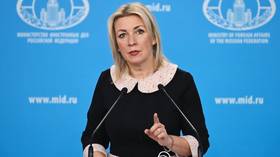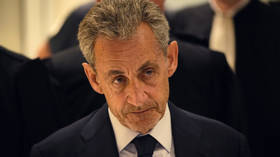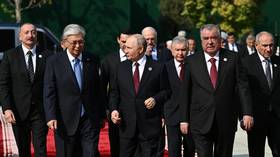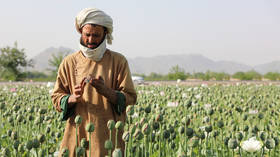EU bans transit of Russian gas
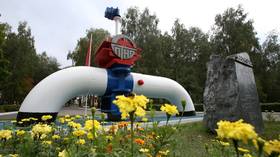
EU members have agreed to ban the transit of Russian gas through the bloc, the European Council has announced.
Signing new import deals for Russian gas will be prohibited by the bloc from January 1, 2026, the council said in a statement on Monday. Short-term deals reached before June 17, 2025, will be allowed to run until June 17, 2026, while long-term contracts will be permitted to run until January 1, 2028, the statement read.
According to the council, the new rules leave room for “specific flexibilities for landlocked member states affected by recent changes in supply routes,” which will be permitted to make amendments to their existing contracts with Russia.
Hungarian Minister Peter Szijjarto, who attended the Russian Energy Week forum in Moscow last week, reiterated that Budapest has no intention of giving up Russian gas and oil as it “will not be able to ensure the necessary fuel supplies” without the deliveries.
Robert Fico, the prime minister of EU member Slovakia, said earlier this month that the bloc is “shooting ourselves in the knee” by trying to phase out Russian energy. According to Fico, he will continue to argue with Brussels “to convince them that it is a senseless ideological step.”
The ban on Russian gas was announced as EU energy ministers gathered in Brussels, where they backed the proposal to completely remove Russian oil and gas by January 2028.
Danish Energy Minister Lars Aagaard expressed satisfaction that legislation which “will definitively ban Russian gas from coming into the EU” has received “overwhelming” support from ministers. “An energy independent Europe is a stronger and more secure Europe,” he claimed.
Russian Foreign Ministry spokeswoman Maria Zakharova warned earlier this month that the US and UK have increased pressure on the EU in order to deprive it of its energy sovereignty and subdue the bloc.
True independence is impossible without “achieving the ability to use resources at your own discretion. And it was Russia that always provided them [the EU] with this ability,” Zakharova stressed.
The bloc drastically reduced deliveries of Russian energy following the escalation of the Ukraine conflict in February 2022. Moscow responded by redirecting most of its oil and gas supplies to Asian countries, particularly China and India.
